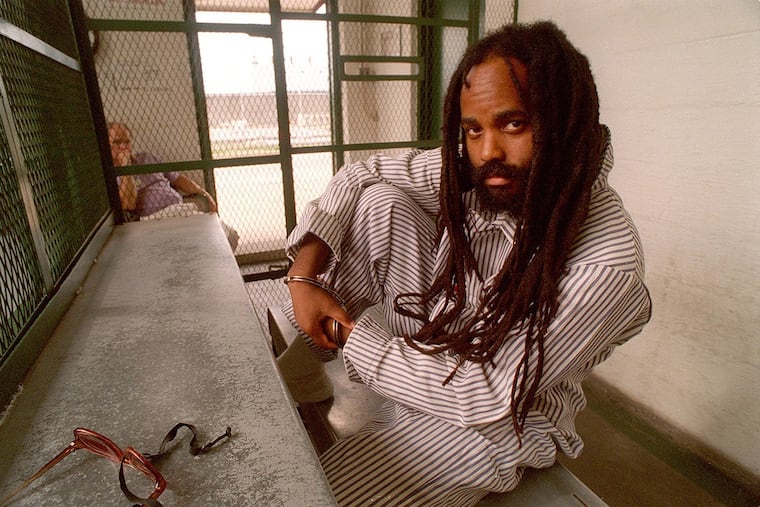Mumia Abu-Jamal’s four-decade quest to overturn his murder conviction has again been denied by a Philly judge
Abu-Jamal, 69, was convicted of fatally shooting Philadelphia Police Officer Daniel Faulkner in 1981.

A Philadelphia judge has dismissed the latest appeal from Mumia Abu-Jamal, who for nearly 40 years has been seeking to overturn his murder conviction in one of the city’s most notorious crimes: the fatal shooting of Police Officer Daniel Faulkner.
Common Pleas Court Judge Lucretia Clemons wrote in an opinion last week that none of the three claims Abu-Jamal raised in his most recent petition warranted relief. Abu-Jamal, 69, had sought to convince Clemons his conviction was tainted by new evidence discovered in 2019 inside file boxes found at the District Attorney’s Office.
That evidence, Abu-Jamal argued, showed prosecutors had illegally withheld materials casting doubt on the credibility of two key witnesses, and showed the trial prosecutor had improperly sought to disqualify most potential jurors who weren’t white.
But Clemons was not persuaded. She ruled that the new information regarding the witnesses was not strong enough to cast doubt on the overall strength of Abu-Jamal’s conviction, and said the claim about potential jurors was old and already had been extensively litigated.
One of Abu-Jamal’s attorneys, Bret Grote, said they plan to appeal Clemons’ ruling.
The District Attorney’s Office declined to comment.
Abu-Jamal was convicted of murder for fatally shooting Faulkner, 25, in Center City on Dec. 9, 1981. Abu-Jamal had been driving a taxi near 13th and Locust Streets around 4 a.m. when he noticed Faulkner had pulled over his younger brother in a car stop.
Prosecutors said Abu-Jamal then shot Faulkner, including by standing over him and shooting him in the face. Faulkner, in turn, shot Abu-Jamal in the chest, and he was found, wounded, next to Faulkner’s body.
After being convicted and sentenced to death, Abu-Jamal, an activist and former radio reporter, became an international cause cèlébre, with supporters saying he was innocent and railroaded by the criminal justice system. Over the past four decades, he has filed at least eight appeals, one of which led to his death sentence being overturned (he was given a life sentence instead).
In his latest petition, Abu-Jamal relied largely upon materials discovered four years ago, when prosecutors said they inadvertently found file boxes related to the case inside the DA’s Office while searching for furniture.
Abu-Jamal said the documents — which were not previously turned over to them, as required — suggested one eyewitness, Robert Chobert, had been paid for his testimony, while another witness, Cynthia White, had been promised leniency in pending prostitution cases.
But Clemons said even if Abu-Jamal was able to prove both of those assertions, they “would not cast [his] trial in such a different light as to undermine confidence in his first-degree murder conviction.”
In his other claim, Abu-Jamal said notes taken by trial prosecutor Joseph McGill showed he was keeping track of potential jurors’ races, and therefore improperly seeking to exclude people who weren’t white.
But Clemons said that Abu-Jamal had unsuccessfully raised the same issue numerous times in the past, and that he had routinely “failed to make any reasonable efforts to discover McGill’s motivations” — including by opting not to question McGill at a hearing on the issue in 1995.
Prosecutors had opposed Abu-Jamal’s arguments, saying the new materials did not undermine his conviction.
If Abu-Jamal does move to appeal Clemons’ ruling, it could be months before a higher court issues another decision in the case.